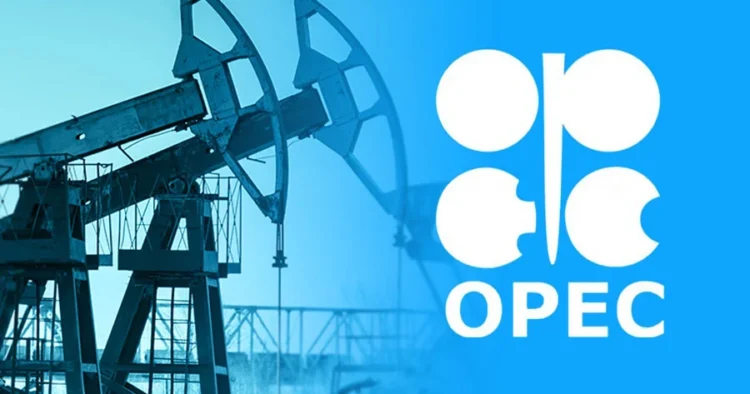Publisher: Maaal International Media Company
License: 465734
OPEC: Oil Demand Growth to Remain Strong for 25 Years
OPEC Secretary-General Haitham Al-Ghais said on Tuesday that oil demand growth will remain strong for the next two and a half decades as the world’s population increases.
The organization expects a 24% increase in global energy needs between now and 2050, with oil demand exceeding 120 million barrels per day during that period.
These estimates are in line with OPEC’s 2024 World Oil Outlook.
اقرأ المزيد
According to Reuters, Al-Ghais stated, during his participation in the World Energy Exhibition in Calgary, Alberta, Canada, that “there is no peak in oil demand in sight.”
He said that the measures taken by the Canadian oil sector to increase production in recent years have impressed OPEC.
Canada achieved record crude production in 2024, as the completion of the Trans Mountain pipeline expansion has enhanced the ability of oil companies to deliver their products to market.
Danielle Smith, Premier of Alberta, Canada’s largest oil-producing province, spoke of her desire to double the province’s oil and gas production by 2050.
Al-Ghais said OPEC has consistently warned of the risks of insufficient global investment in oil and gas, given its forecasts for demand growth.
He added that not investing enough capital to meet expected demand growth threatens to undermine energy security and cause volatility for both producers and consumers. He added that OPEC believes $17.4 trillion in investment is needed in the global energy sector over the next 25 years.
OPEC has begun unwinding its production cuts at a faster pace than initially expected, increasing production by 411,000 barrels per day in May, June, and July.
Oil prices have been under pressure in recent months due to these increases, as well as concerns that US President Donald Trump’s trade war could weaken the global economy.
Brent crude futures closed trading today at $66.87 a barrel. The US Energy Information Administration said it expects Brent crude prices to fall to around $60 per barrel by the end of the year and average $59 per barrel next year.
Al-Ghais said OPEC welcomed recent opposition to what he described as unrealistic climate targets, emphasizing the need to reduce emissions but without bias against specific energy sources.
He said governments and companies should instead look for ways to reduce emissions from oil and gas through technologies such as carbon capture and storage.









